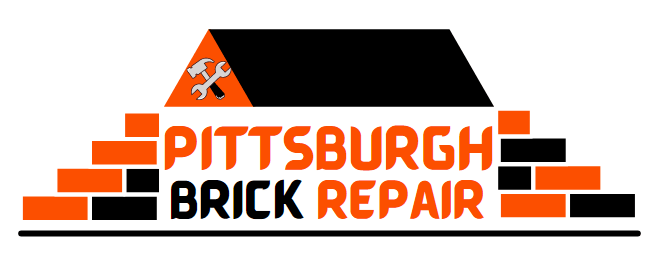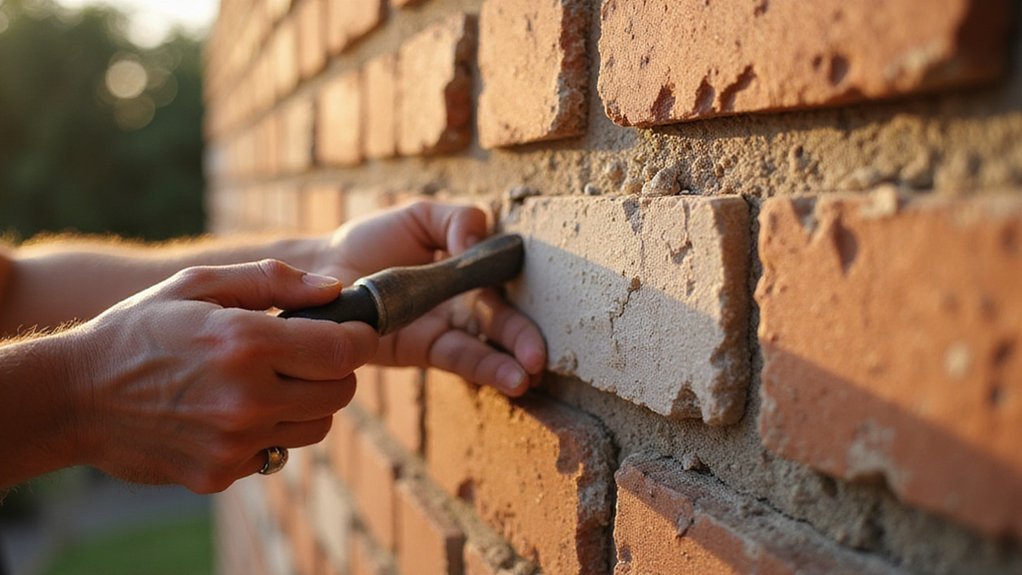Have you noticed cracks in your home’s brick walls or crumbling mortar? These aren’t just cosmetic issues—they’re potential worth killers. Masonry damage can dramatically lower your property’s market value, signaling neglect to potential buyers. But here’s the good news: strategic repair can transform these weaknesses into strengths. By addressing masonry problems proactively, you’ll not only protect your home’s structural integrity but also enhance its resale appeal. Want to know how simple repairs can turn your property into a more precious asset?
Understanding the Impact of Masonry Damage on Property Value
When masonry damage strikes your home, it can quickly become more than just an aesthetic issue—it’s a potential threat to your property’s market value. Cracks, deteriorating mortar, and structural weaknesses can substantially reduce your home’s resale potential.
Your masonry’s integrity directly impacts how potential buyers perceive your property, potentially lowering its perceived worth and attractiveness. Unaddressed masonry problems signal neglect and might suggest deeper structural concerns, which can drastically decrease your home’s market value.
Proactive repair isn’t just about maintaining appearances—it’s about protecting your investment and ensuring your home remains a precious asset in the competitive real estate market. Tuckpointing techniques can help preserve your home’s structural integrity and prevent further damage that could compromise its value.
Early Detection: Signs of Masonry Wear and Potential Structural Issues
Some homeowners mightn’t realize that masonry damage often begins subtly, with seemingly minor signs that can quickly escalate into significant structural concerns. Prompt repair of brickwork is crucial to prevent extensive damage and costly remediation, as unaddressed moisture seepage can undermine the structural integrity of your home. You’ll want to watch for crumbling mortar between bricks, which can indicate deeper problems lurking beneath the surface. Weathered brickwork with visible cracks, uneven surfaces, or discoloration are red flags you shouldn’t ignore. These warning signs suggest potential water damage, foundation shifts, or structural weakening that could compromise your home’s integrity and value.
Cost-Effective Repair Strategies for Different Masonry Materials
Brick, concrete, and stone each require unique repair approaches that can greatly impact your home’s restoration budget.
When selecting masonry materials, you’ll want to ponder durability, cost, and long-term performance. Concrete might need specialized crack filling, while brick often requires targeted mortar replacement. Stone repairs can involve delicate restoration techniques that preserve historical integrity.
Professional masonry repair techniques can help you save money by addressing issues early and preventing extensive damage. By comprehending your specific material’s characteristics, you’ll make smarter repair decisions that protect your home’s structural health and maintain its value.
Professional vs. DIY Masonry Repair: What Homeowners Need to Know
You’ll face a critical decision when determining whether to tackle masonry repairs yourself or hire a professional. Consider these key factors:
- Skill level and know-how required for complex repairs
- Available time and project timeline constraints
- Potential cost savings versus potential damage risks
DIY challenges can quickly overwhelm even experienced homeowners. While saving money sounds appealing, professional masons bring specialized knowledge that prevents costly mistakes. They understand structural integrity, material compatibility, and proper repair techniques.
Your home’s value depends on quality workmanship, so weigh the risks carefully. Sometimes investing in professional knowledge yields better long-term results than attempting repairs without thorough understanding.
Long-Term Benefits of Regular Masonry Maintenance
Because consistent maintenance prevents expensive structural damage, regular masonry upkeep represents a critical investment in your home’s durability and worth. Weatherproofing masonry helps protect your property from moisture intrusion, which can compromise structural integrity preservation.
Enhancing Curb Appeal Through Strategic Masonry Restoration
When strategically planned, masonry restoration can powerfully change your home’s exterior appearance and greatly amplify its curb appeal. Thoughtful repairs create a visual impact that transforms your property’s aesthetic.
Consider these key restoration strategies:
- Repair cracked or deteriorating brickwork using sustainable materials that match your home’s original style.
- Refresh mortar joints with color-coordinated, durable replacement techniques.
- Clean and seal existing masonry to protect against future damage and maintain a pristine look.
These targeted improvements won’t just elevate your home’s appearance—they’ll increase its market value and neighborhood standing.
Insurance and Financing Considerations for Masonry Repair Projects
Maneuvering insurance and financing options can drastically influence the success and affordability of masonry repair projects. You’ll want to investigate extensive insurance coverage options that protect your investment while understanding potential home repair financing solutions.
Homeowners insurance might partially cover structural damage, but specific masonry repairs often require additional research. Some policies exclude normal wear and maintenance, so carefully review your current coverage.
Local banks and specialized home improvement loan programs can offer attractive financing packages customized to restoration work, helping you manage unexpected repair costs without overwhelming your budget.
Increasing Resale Value: How Quality Masonry Work Attracts Potential Buyers
Quality masonry work can drastically enhance your home’s market appeal and resale value, potentially increasing property worth by up to 10% or more. Buyers are drawn to homes that showcase meticulous maintenance and structural integrity.
Consider these key factors that amplify buyer perception:
- Visible structural repairs demonstrate home care
- Aesthetic improvements signal a well-maintained property
- Professional masonry work indicates long-term investment potential
When potential buyers see expertly repaired brickwork, stonework, or mortar, they’ll perceive your home as precious and trustworthy. Your commitment to quality maintenance speaks volumes, making your property stand out in a competitive real estate market.
Frequently Asked Questions
How Long Does a Typical Masonry Repair Project Take to Complete?
You’ll find most masonry repair projects take 2-5 days, depending on your work schedule and project timeline. Complex repairs might extend to a week, ensuring thorough, quality restoration of your cherished home.
Can Masonry Damage Lead to Serious Structural Problems in My Home?
Yes, untreated masonry damage can compromise your home’s structural integrity. Moisture intrusion can weaken foundations, cause cracks, and lead to costly repairs if you don’t address issues promptly.
Will Masonry Repairs Significantly Increase My Property’s Market Value?
You’ll elevate your home’s market value through masonry repairs that augment increased property appeal and create improved home aesthetics, making your property more attractive to potential buyers.
What Maintenance Steps Can Prevent Future Masonry Deterioration?
You’ll protect your masonry by maintaining a regular cleaning schedule and scheduling professional inspection intervals. These proactive steps prevent moisture damage, catch early wear, and preserve your home’s structural integrity.
Are There Specific Seasons Best for Conducting Masonry Repair Work?
You’ll want to tackle masonry repairs during dry, mild seasons like late spring or early fall. These weather conditions provide ideal seasonal schedules for effective work without extreme temperatures interrupting the process.

